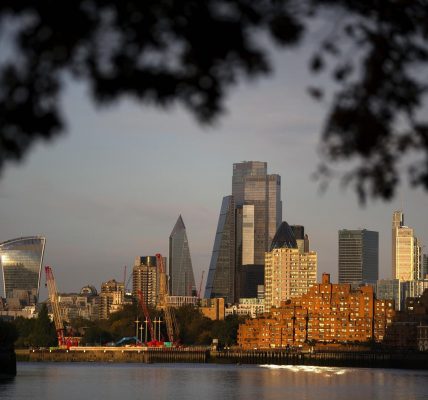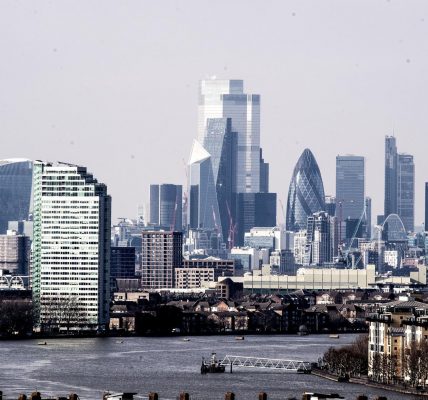We may soon be feeling the tax pain deep in our pockets – Sarah Coles
When it comes to startling revelations from official figures this week, there’s very little that challenges the bombshells dropped by the PM’s former adviser.
So you might be forgiven for overlooking a bumper pack of tax statistics issued earlier in the week by the Treasury, which featured a bunch of tax receipt charts resembling the trajectory of a log flume.
However, in time, the dramatic drop in tax revenue during the crisis may well have more actual impact on your life.
The figures revealed the eye-watering cost of the schemes designed to support people through the pandemic.
In the last financial year, the furlough scheme set the Treasury back £58bn and the self-employment grant £19.7bn.
This is just a drop in the ocean of overall costs, which the National Audit Office has put at £372bn.
Meanwhile, the report also showed that the Government raised almost £50bn less in tax in the last financial year.
Right now, the Chancellor is sticking a major chunk of the cost on credit, but there’s every chance that it won’t be long before he asks us to put our hands in our pockets.
HMRC took £584.3bn in tax in 2020/2021, a fall of £49bn in a year. Part of this was due to Covid restrictions.
Not being able to get to the shops for months on end helped push VAT down 22 per cent, while not being able to travel overseas for most of the year was behind an 84 per cent fall in air passenger duty, and the instruction to ‘stay at home’ added to a 24 per cent drop in fuel duty.
While we hung around at home, we found other things to keep us busy, which is why the tax on both tobacco and alcohol was up.
Tobacco tax bucked a decade long downwards trend to hit £10bn, while the tax on the wine and spirits we drank at home more than offset the beer and cider we’d usually drink in the pub, so we spent £12.1bn on alcohol taxes.
The Government’s efforts to stimulate various parts of the economy also came at a cost. It wasn’t just the £0.8bn Eat Out to Help Out scheme, there was also the 5 per cent VAT rate on hospitality which helped cut VAT receipts and the stamp duty holiday which meant the tax take fell by a quarter despite properties flying off the books.
There was a tragic exception to the rule in the tax figures: inheritance tax was up 4 per cent to £5.3bn.
The number of people who lost their lives in the first year of the pandemic meant more went through probate, and it generated more money for the Treasury.
The scale of spending and the drop in tax receipts demonstrates just why the Treasury wants to start making up the shortfall as soon as possible, with spending cuts and tax rises.
The Chancellor is keen not to rush into this, for fear of derailing the recovery. However, as soon as the time is right, we can expect the bad news.
There’s already plenty of speculation as to how these tax hikes might look. The fact the Treasury asked the Office of Tax Simplification to look into capital gains tax and inheritance tax means they may well be in the frame.
We also know at times like this that the future of pension tax relief comes up for discussion. It usually gets shouted down by politicians, but this time round, the scale of the problem may be enough to convince them that more drastic action is necessary.
There are those who hope that by the time we get to the stage where the country can cope with tax hikes, we don’t need them any more.
They point to promising signs, such as the fact that borrowing figures this week came in below the Office of Budget Responsibility forecasts.
However, before we get too optimistic about this, it’s worth noting that debt is now at £2.1 trillion or 98.5 per cent of GDP, and we haven’t seen debt levels this high since the 1960s.
We can’t be absolutely certain we’ll see tax hikes, and if we do, we don’t know which taxes will change, how they’ll be altered, or exactly when it will take place.
However, what we can be sure of is that the tax environment for savers and investors isn’t going to get any more generous than it currently is.
It should focus the minds of anyone who isn’t taking as much advantage of their pension and ISA allowances as they can.
You might not be able to salt away £20,000 in a hurry, but if you have investments outside an ISA, or money you’re planning to invest that you haven’t got round to, now is the time to get them into an ISA.
Meanwhile, if you’re a higher rate taxpayer, contributions to your pension right now may be the most rewarding move you can make.
Sarah Coles, is a personal finance analyst at Hargreaves Lansdown
Support The Fond News and become a subscriber today. Your subscription will help us to continue to bring quality news to the people of US. In return, you’ll see fewer ads on site, get free access to our app and receive exclusive members-only offers. Click here to subscribe.










